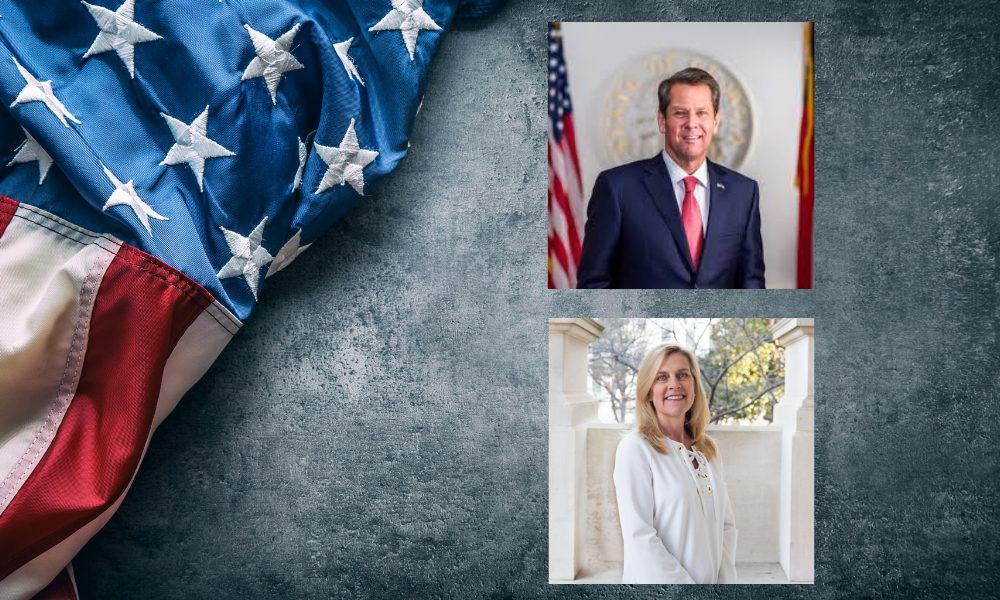Governor Brian Kemp and First Lady Marty Kemp were joined by Georgians for Refuge, Action, Compassion, and Education (GRACE) Commission members, legislators, and special guests as they announced two important legislative measures, along with a Department of Driver Services rule change, to combat human trafficking in Georgia.
“Brian and I are proud to renew our commitment in the fight against human trafficking going into 2021,” said First Lady Marty Kemp. “With these important initiatives and the support of our state and national partners, we can continue taking important steps to end modern day slavery and ensure that our state is a safe haven for survivors – not their abusers.”
“During our first days in office, we hit the ground running to crack down on traffickers, care for survivors, and eradicate modern day slavery in our state,” said Governor Brian Kemp. “And I don’t think any First Lady in the country has done more to end human trafficking than our First Lady, Marty Kemp. This legislation is a strong testament to Marty’s commitment to dismantle this criminal industry for good, and we will not rest until every victim is rescued and every trafficker is behind bars.”
Name Change Exception for Survivors of Human Trafficking
This legislation proposes to amend Georgia’s name change statue to protect the privacy and safety of survivors of human trafficking who wish to change their names. Currently, Code Section 19-12-1 requires anyone wishing to change their name in Georgia to file a petition for name change with their local Superior Court. Public notice of this petition must be published in the county’s legal organ (newspaper) once per week, consecutively for four weeks. The notice must include the petitioner’s current name, the new name the petitioner is seeking to assume, the court the petition has been filed in, the date of the filing, and a notice of the right of any affected or interested party to appear and object to the change.
There is one current exception to the above requirements for victims of family violence. An individual may petition the court to file their petition under seal as a victim of family violence. If the judge allows it, the victim may skip the notice requirement and file their petition secretly with the court. This bill creates the same exception for survivors of human trafficking.
Civil Remedy for Victims of Human Trafficking
This bill proposes a civil cause of action by which a victim of human trafficking may sue any person who knowingly benefitted from any venture or scheme which that person knew or should have known involved human trafficking. Any civil suit filed under this section will be stayed until after any criminal cases arising from the action are resolved. The bill creates a ten-year statute of limitations from the date of the human trafficking offense, or, if the victim is a minor, from the victim’s 18th birthday. The bill also creates a cause of action whereby the Attorney General may file suit against human traffickers.
This bill mirrors federal 18 U.S.C. § 1595, which allows victims and Attorney Generals to sue human traffickers in federal court. This bill provides a state remedy for those who were victimized by traffickers who do not face federal charges or have out-of-state ties.
Department of Driver Services Rule Change
This Department of Driver Services rule change would require new and renewal applicants for Commercial Driver’s Licenses to take an anti-human trafficking course and provide proof of attendance in order to receive their license.
The legislation outlined above will be formally introduced in the coming days.








